Campaigners have warned that the continued growth of motor traffic risks undermining the Government’s aims for economic growth. It also threatens the Government’s ‘missions’ to protect the NHS, overcome barriers to opportunity and achieve ‘net zero’. They are urging Ministers to take action to halt and reverse these trends.
New figures released yesterday show that the distance people travel in cars, vans and taxis is now back to 97% of pre-pandemic levels. Motor traffic has now almost doubled since 1980 and has increased 10-fold since 1950. Meanwhile travel by bus was in long-term decline pre-pandemic, and its recovery is now threatened after the Government raised the cap on bus fares from £2 to £3, while holding down fuel duty. The Government’s future projections show motor traffic in England and Wales continuing to rise, by up to 54% by 2060.
Low Traffic Future, an alliance of groups and individuals concerned with health, the environment, sustainable transport and road safety, warns that these trends are putting at risk all five of the Government’s ‘missions’:
- Economic growth: Congestion is estimated to cost the UK economy around £7.5bn annually. Improving urban walking and cycling conditions strengthens the retail economy.
- Protecting the NHS: the health costs of car-dependence include air pollution (estimated to hasten up to 36,000 deaths annually in the UK, at an economic cost of £20bn or more); illness relating to physical inactivity (costing the UK around £7.4bn annually); road injuries (which cost over £42bn in Britain in 2023) and noise (whose estimated health, societal, amenity and lost productivity costs in England add up to around £14-20bn annually).
- Barriers to opportunity: Better transport choices, particularly in rural areas, are vital for those who cannot drive to get to education or employment. This includes children and young people, people on lower incomes and those who cannot drive due to disabilities or health conditions. 21.3% of people in the North of England live in areas with a high risk of transport-related social exclusion, compared with 16% of people elsewhere in England.
- Safer streets: making streets safe for walking and cycling results in more eyes on the street, reducing street crime – e.g. by 10% in Walthamstow’s low traffic neighbourhoods.
- Climate: domestic transport is now the UK economy’s largest-emitting sector, with tailpipe emissions alone (i.e. excluding the impacts of vehicle manufacturing) accounting for 28% of greenhouse gas emissions. Unlike other sectors (notably energy), emissions from transport have hardly reduced since 1990.
The Government is under a duty to set a new plan for achieving net zero by next May, after the High Court ruled for a second time that the previous Government’s net zero plans were legally inadequate. A growing body of evidence shows that at least a 20% reduction in car-km by 2030 is needed for surface transport to play its part in meeting the UK’s climate targets. Yet current trends are still heading strongly in the opposite direction.
As well as a new net zero plan, the Government has promised to publish an Integrated National Transport Strategy (INTS) in 2025 and has invited the public to submit ideas.
Low Traffic Future believes the new transport strategy must set a new direction. The alliance will be launching a campaign in the new year, to press for the INTS to include motor traffic reduction targets, in line with what is needed to meet the UK’s climate and air quality targets.
Roger Geffen, joint coordinator of the alliance, said:
“The continued growth of motor traffic strikes at the very heart of Labour’s missions. It is a threat not only to economic growth but also to the NHS, increasing opportunities and reaching net zero. 2025 must be the year when ministers set us on a new course for a low traffic future. That means giving people real choices about how we make our day-to-day journeys, in ways that benefit our health, our wealth and well-being, now and for future generations.”
– ENDS –
Note to editors:
Low Traffic Future is an alliance of individuals and groups, who share a vision of a world where fewer journeys need to be made by car, van or lorry. We wish to see safe, convenient, accessible and affordable transport options available for both people and goods, so that we can all benefit from clean air, safe streets, vibrant communities, a stable climate and a thriving natural environment. Our members include 28 national environmental, health, road safety and sustainable transport organisations.




